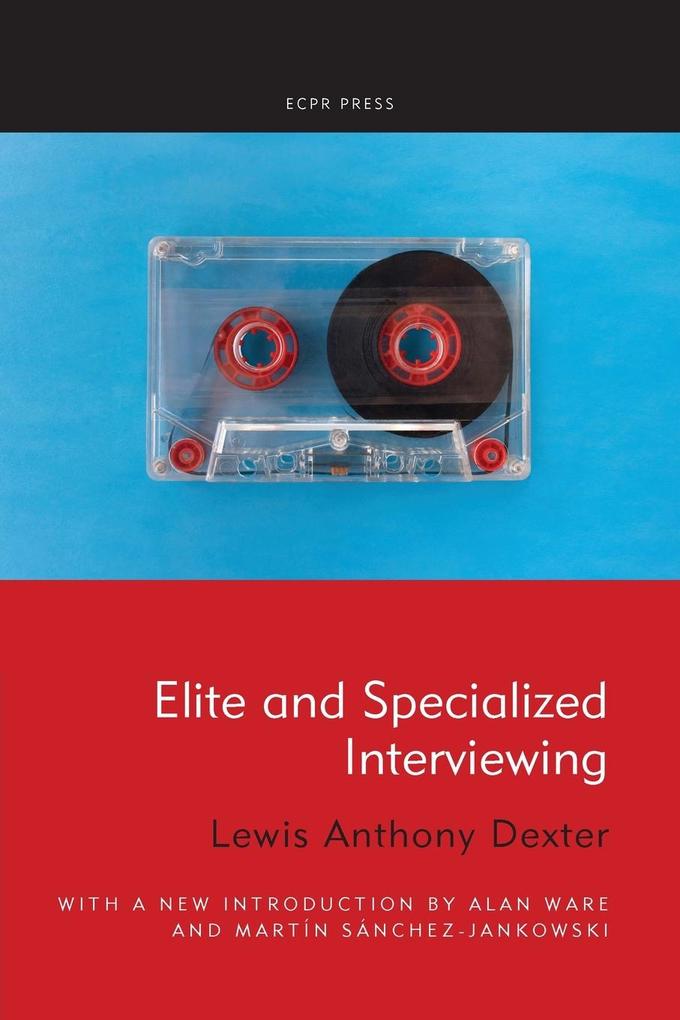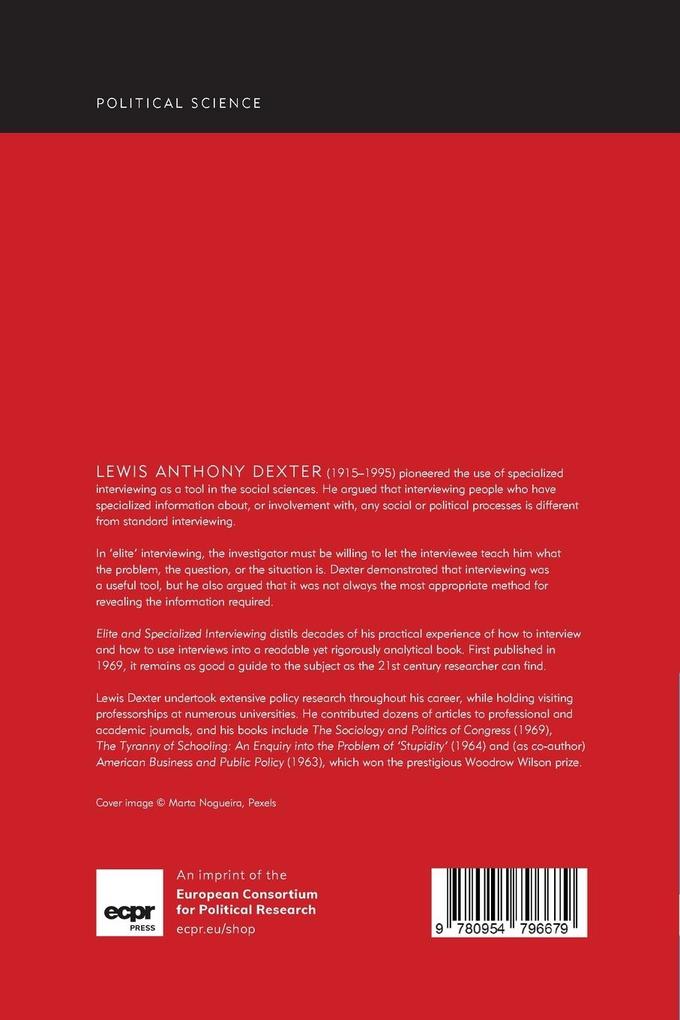
Zustellung: Mi, 09.07. - Sa, 12.07.
Versand in 5 Tagen
VersandkostenfreiBestellen & in Filiale abholen:
Lewis Anthony Dexter (1915-1995) pioneered the use of specialized interviewing as a tool in the social sciences. He argued that interviewing persons who have specialised information about, or who have involvement with, any social or political processes is different from standardised interviewing. In 'elite' interviewing the investigator must be willing to let the interviewee teach him what the problem, the question, or the situation is. He demonstrated that interviewing was a useful tool, but he also argued that it was not always the most appropriate method for revealing the information required. In Elite and Specialized Interviewing decades of his practical experience, of both how to interview and how to use interviews, was distilled into a readable, yet rigorously analytical, book. First published in 1969, it remains as good a guide to the subject as the 21st century researcher can find.
Inhaltsverzeichnis
contents New Introduction by Alan Ware and Martin Sanchez-Jankowski Editor's Foreword Acknowledgments CHAPTER I Introduction CHAPTER II Suggestions for Getting, Conducting, and Recording the Interview CHAPTER III Working Paper on Interviewing Procedures for a Law and Psychiatry Project CHAPTER IV On Oral History Interviewing by Charles Morrissey CHAPTER V What Kind of Truth Do You Get? "How Do You Know if the Informant Is Telling the Truth?" by John P. Dean and William Foote Whyte Facts, Inference, and Analysis CHAPTER VI Toward a Transactional Theory of Interviewing: Self-Assessment in the Interview Process References and Sources Index
Produktdetails
Erscheinungsdatum
01. März 2008
Sprache
englisch
Seitenanzahl
172
Autor/Autorin
Lewis Anthony Dexter, Tbd
Verlag/Hersteller
Produktart
kartoniert
Gewicht
272 g
Größe (L/B/H)
234/156/10 mm
ISBN
9780954796679
Entdecken Sie mehr
Bewertungen
0 Bewertungen
Es wurden noch keine Bewertungen abgegeben. Schreiben Sie die erste Bewertung zu "Elite and Specialized Interviewing" und helfen Sie damit anderen bei der Kaufentscheidung.










